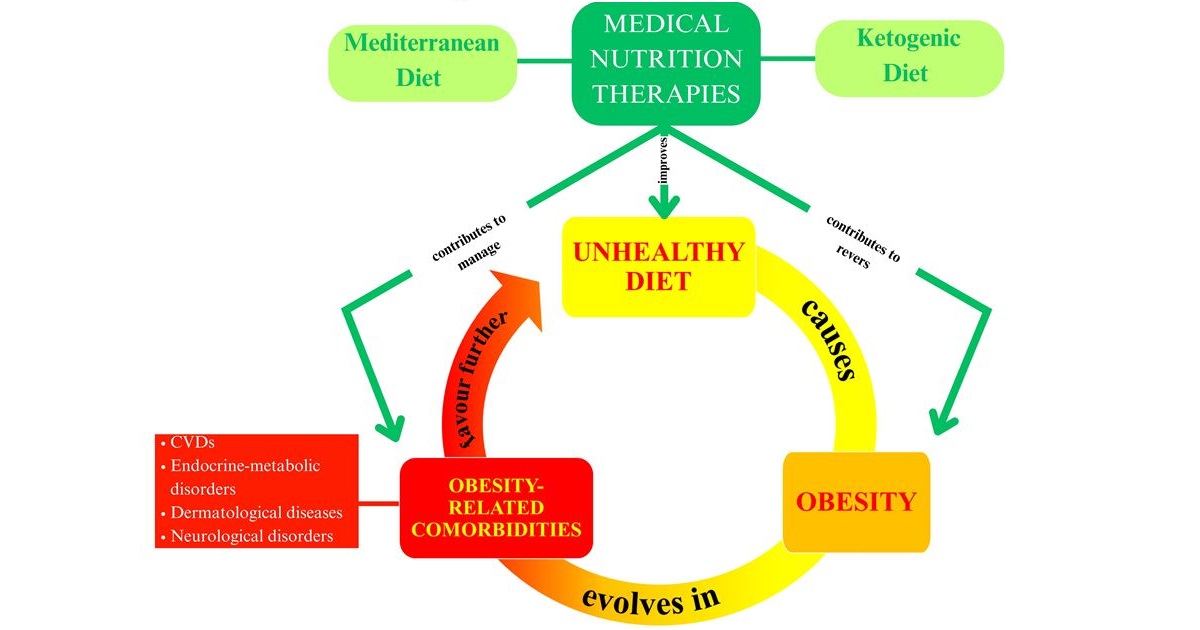- 5.0Impact Factor
- 9.1CiteScore
- 13 daysTime to First Decision
Ketogenic Diet and Mediterranean Diet as Medical Nutrition Therapies
This special issue belongs to the section “Clinical Nutrition“.
Special Issue Information
Dear Colleagues,
Diet plays a pivotal role in the phato-physiological processes related to many chronic diseases, particularly those related to environmental factors (i.e., lifestyle). Therefore, tailored nutritional interventions should be considered as Medical Nutrition Therapy (MNT) for primary and secondary prevention, as well as the management of many clinical conditions.
Ketogenic diets (KDs) and the Mediterranean diet (MD) were appointed as strategies for MNT, given the solid evidence supporting their use in several clinical settings, ranging from cardiometabolic diseases to dermatology/neurology.
This Special Issue aims to collect the most novel insights on the role of KDs and the MD in disease prevention and/or management. Original research articles (mainly from clinical trials) or scientific literature reviews (including narrative/scoping reviews, systematic reviews, meta-analyses) are welcome. Conttibutions describing novel mechanisms of action/targets will be profoundly appreciated
Dr. Luigi Barrea
Dr. Giuseppe Annunziata
Dr. Claudia Vetrani
Guest Editors
Manuscript Submission Information
Manuscripts should be submitted online at www.mdpi.com by registering and logging in to this website. Once you are registered, click here to go to the submission form. Manuscripts can be submitted until the deadline. All submissions that pass pre-check are peer-reviewed. Accepted papers will be published continuously in the journal (as soon as accepted) and will be listed together on the special issue website. Research articles, review articles as well as short communications are invited. For planned papers, a title and short abstract (about 250 words) can be sent to the Editorial Office for assessment.
Submitted manuscripts should not have been published previously, nor be under consideration for publication elsewhere (except conference proceedings papers). All manuscripts are thoroughly refereed through a single-blind peer-review process. A guide for authors and other relevant information for submission of manuscripts is available on the Instructions for Authors page. Nutrients is an international peer-reviewed open access semimonthly journal published by MDPI.
Please visit the Instructions for Authors page before submitting a manuscript. The Article Processing Charge (APC) for publication in this open access journal is 2900 CHF (Swiss Francs). Submitted papers should be well formatted and use good English. Authors may use MDPI's English editing service prior to publication or during author revisions.
Keywords
- ketogenic diet
- Mediterranean diet
- obesity
- cancer
- endocrine disorders
- cardiovascular diseases
- neurological disorders
- dermato-endocrine disorders
- psychiatric diseases
- gastroenterological diseases
- lifelong nutrition
- bioactive compounds
- insulin-resistance- related disorders
- nutraceuticals
- functional foods
- clinical nutrition

Benefits of Publishing in a Special Issue
- Ease of navigation: Grouping papers by topic helps scholars navigate broad scope journals more efficiently.
- Greater discoverability: Special Issues support the reach and impact of scientific research. Articles in Special Issues are more discoverable and cited more frequently.
- Expansion of research network: Special Issues facilitate connections among authors, fostering scientific collaborations.
- External promotion: Articles in Special Issues are often promoted through the journal's social media, increasing their visibility.
- e-Book format: Special Issues with more than 10 articles can be published as dedicated e-books, ensuring wide and rapid dissemination.

